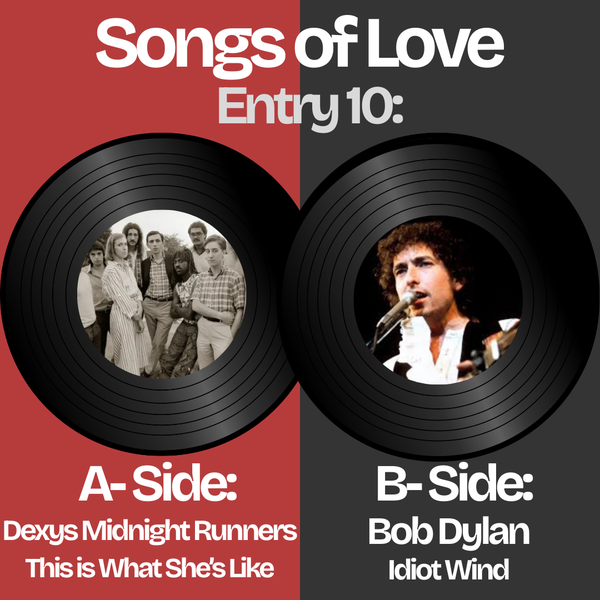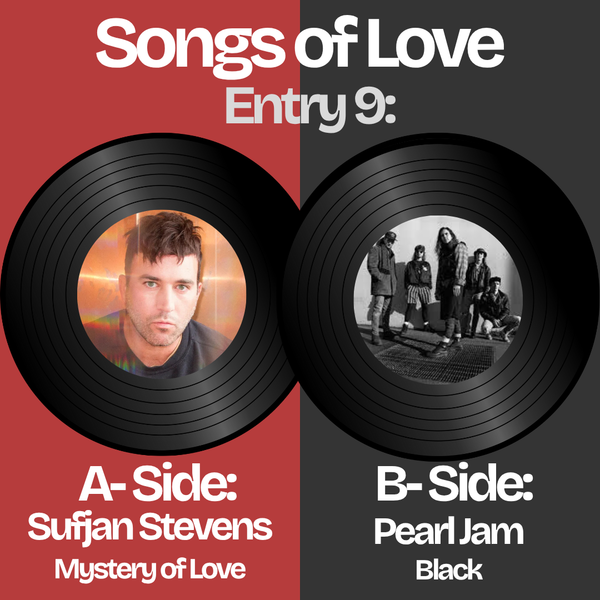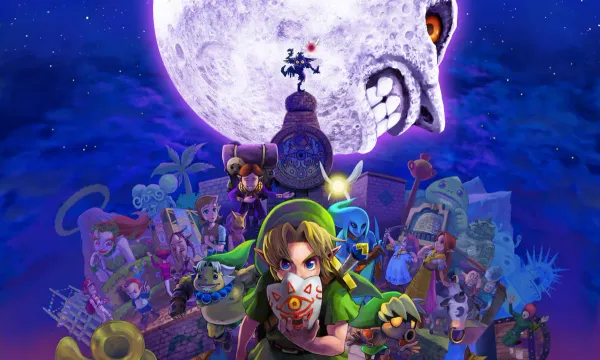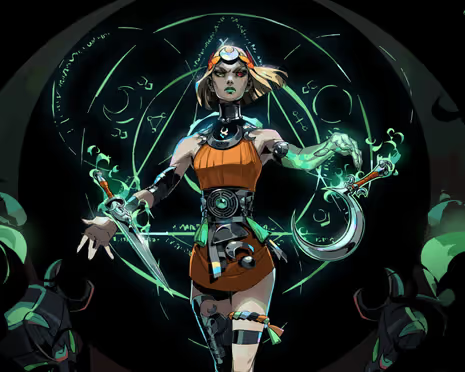Songs of Love 8
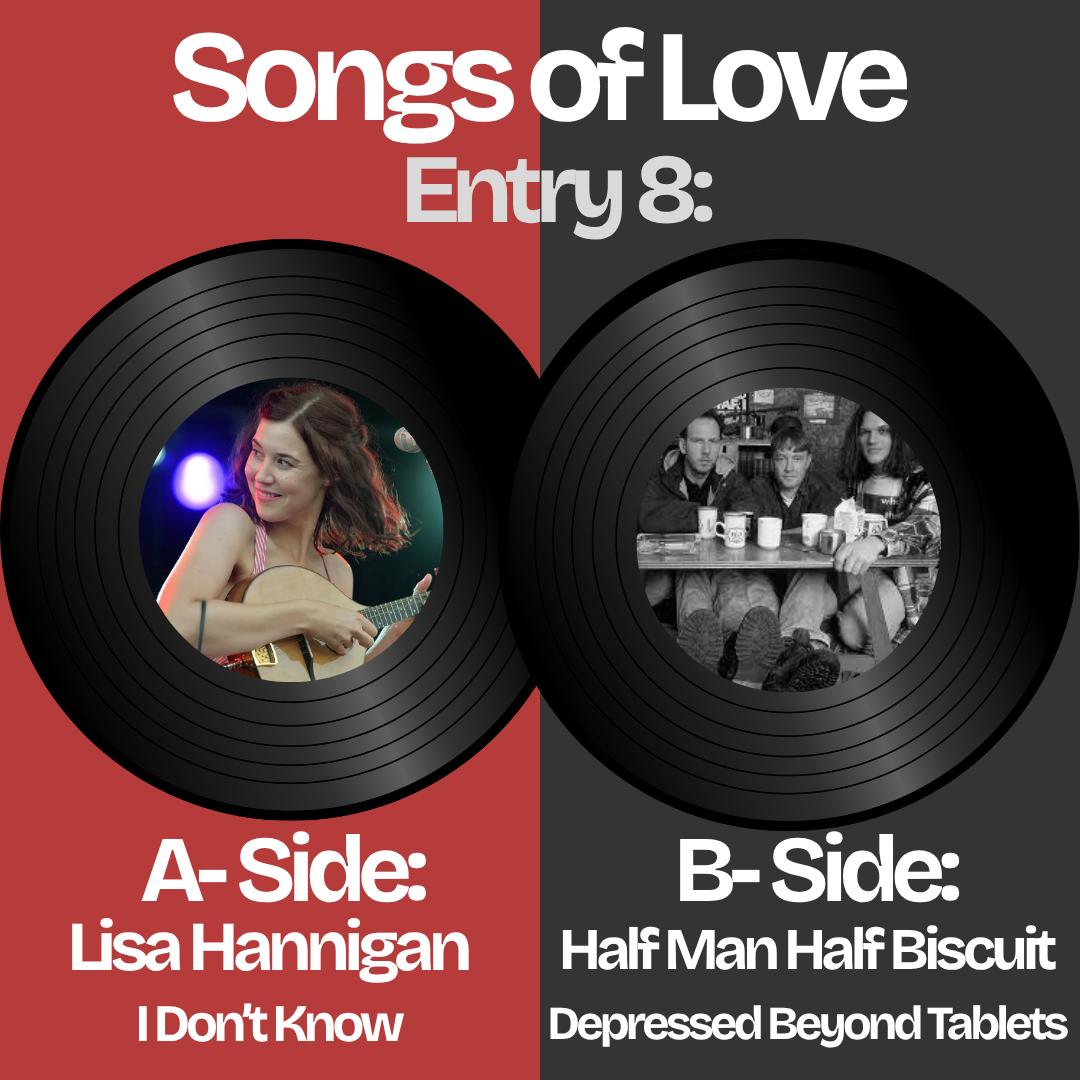
Some love songs, as we’ve seen, live on details, on specifics, about a particular scene or the way someone looks or similar. Others are more abstract, and that’s the case in different ways with these two. One is about a beginning, or even the space before a beginning, while the other is about the void after an ending. One speculates about specifics that are currently unknown, while the other is all hyperbolic metaphor and self-lacerating imagination. But that’s not to say they don’t deal in specificity of a sort: both are about very particular emotions, and very particular stages in anticipating or mourning a relationship. It’s this kind of specificity that gives both their power.
A-Side
Performed by Lisa Hannigan
Written by Lisa Hannigan
Released 2008
As I’ve mentioned before (including in the last entry), a lot of great love songs are about first encounters, about sudden undefinable chemistry – first meetings, first kisses etc. Sometimes they project a future, sometimes they’re stuck in a moment (and they can’t get out of it)[1]. This song is unusual in that respect because it seems to deal with the mental process after a first encounter. Or is it? It could just as easily be a song of looking at an attractive person on public transport and wondering what they’re like – “I’d like to meet you” certainly suggests that no real conversation has happened. Or it could be a song of flirtation, of the period when two people are dancing around each other in a waltz of mutual longing. It could be a first date song, even a second date song, of trying to get to know someone. It’s not really tied down to anything. And yet it is about an enormously specific feeling: the excitement of getting to know someone about whom you would like to know absolutely everything.
Like so many love songs, the specificity is what makes it. The concrete wonderings – do they swim? What are they like on the phone? Can they speak any other languages? – stand in for the general state of imagining another person’s life. Some, notably how the singer sleeps, have other resonances attached to them, but for the most part these are simply mundane details of a life. This is a song of indefatigable curiosity, but also of attempted empathy.
And that is, of course, what love is, on a fundamental level. It’s about knowing and understanding another person, truly and deeply. Everything from their core beliefs to their favourite spoon becomes not only second nature to you, but entwined with you, a part of you. And this song is about longing for that kind of knowledge. “I don’t know” here comes with the implication of “I want to know.” Whatever stage of flirtation we’re at, it’s too early for a declaration of undying love, of course, but the singer is willing to hold that out as a possibility at least. For now, they’re intrigued, almost to the point of obsession; they want to get to know this other person in detail. But then getting to know someone is the very definition of a love affair.
So what might that affair look like? Not, we might gather, shouted confessions of love in the midst of a storm, or any other tumultuous romantic ideal. What’s on offer here is, ideally, companionship. To walk, or rather “creep,” together, suggesting something hushed, even secretive. To “feel our way through the dark” – to face life together. The singer assures us that they “don’t fall easy” (which does rather seem to contradict the available evidence, but perhaps not), just to underline how serious this is, lest we should come away with the idea that this is just a passing fancy. This is the real thing, or at least it could be.
It would be easy for a song like this, which is ultimately about one-sided longing, to become solipsistic, but one of the things that makes it truly great is that it doesn’t. As the song goes on, the wondering becomes more open, more generous, more interested in the other person as a full human being, particularly in the third verse. The singer “assume[s] that your heart’s been bruised,” a telling sentiment in that it could only come from someone who has themselves suffered heartbreak. But then, the implication is that that’s a universal human experience, so why not extend empathy? You could argue, in fact, that love is the ultimate extension of empathy, an empathy that enfolds the other person into oneself.
And then things are reversed: “you don’t know if I can draw at all/Or what records I am into.” This reversal is a small thing, but it speaks volumes. On the simplest level, it’s a sort of theory of mind: it grants that the object of the song has their own thoughts and agency, something certainly not glimpsed in every love song. And further, it’s a tacit assumption that the longing is mutual, that these same kinds of thoughts at least are passing through the other person’s mind, as acknowledged in the teasing “Or maybe you would do.”[2] This is still a reach on the singer’s part, but it tells us a lot about where the focus of the song is. This is not a song of seduction, or even of flirtation. If anything, the agency lies with the object – the love affair could begin if they “walk my way.” The singer isn’t going to do anything, at least for now. On a longer timescale, this could be a great love affair, or an unrequited tragedy. For now, though, it’s a site of possibility, the stuff of tentative half-smiles and nervous butterflies. And that’s in itself a fun and exciting place to be.
[1] That’s not a great love song, I just couldn’t resist; reflex took over, as it generally does when I encounter any line from any song in everyday speech. I lead a cursed existence.
[2]Some sources have “Oh, maybe you would do;” I’ve always heard “or,” which I think is stronger phrasing with its implication of a sudden turn or change of mind, but the line works either way.
B-Side
Performed by Half Man Half Biscuit
Written by Nigel Blackwell and Neil Crossley
Released 2005
I suspect, before I begin, I have to explain: yes, in this quasi-academic survey of love songs, I am covering a song called ‘Depressed Beyond Tablets’ by a band called Half Man Half Biscuit. No, this is not a joke. Or not entirely, at least. Because yes, there’s humour here for sure, as there has been in a number of the songs we’ve covered so far – see the Sisters of Mercy for a notable (if speculative) example. This one is marked out only by coming from a band with a bizarre name and a reputation for “funny” songs, which is by no means the same thing as comedy songs. HMHB are, in fact, funny, sometimes extremely so. But they’re never “just” funny. They’re absurd and wry by turns, usually in service of some jaundiced view of the human condition, very often with a swipe at pretentious people (abstract and yet recognisable), hitting their marks very accurately indeed at times. The humour is there for the same reason, say, Leonard Cohen is often very funny[1]: because that’s part of how we communicate as humans. The best comedians often have a purpose beyond making people laugh (not that that’s not sufficient in itself), in the same way that many musicians have a purpose beyond making people dance. Humour is an excellent way to convey any sort of message, and it’s very easy to smuggle in something sincere and serious under a joke. Or rather, to intertwine the two; a joke based on something very real.
And as with much of Cohen’s best work, here it’s the vicissitudes of love under the microscope – actually an unusual topic for HMHB, but one that pops up in a few highlights - ‘The Light at the End of the Tunnel (Is the Light of an Oncoming Train)’ or ‘My Outstretched Arms’ to name a couple of personal favourites. All of these focus on lost loves, and indeed lost lovers, but where ‘The Light…’ reacts with bitterness and ‘My Outstretched Arms’ with a wry shrug, ‘Depressed Beyond Tablets,’ as its title suggest, can hardly muster up the energy for a reaction at all.
And yet, like many of the songs of melancholia and depression we’ve seen here, it’s blisteringly self-aware. The singer’s state here is so bleak that in searching for metaphor, they can only land repeatedly on hyperbole. They’re deep in the abyss, “shrouded by inexorable darkness,” feeling as though they are, in one of the song’s many, many memorable phrases, gutting hummingbirds in hell; an act of wanton destruction and sadism visited upon the natural world. It’s funny, but it’s funny because of the emotional extremity involved. In a vaguely Beckettian sense, the absurdity reflects the bleakness of the situation. The grin is a pained rictus one, the joke delivered through gritted teeth. They’re so deep in melancholia, and so committed to it, that they’ve become competitive as to its depth, scorning the work of French disco trio La Belle Epoque as inconsequential by comparison[2].
Even the appearance of joy or a pretence at cheer is actively painful here: as my favourite line from the song has it, “your optimism strikes me like junk mail addressed to the dead.” A devastating image there, all the more so for its mundanity; the experience of receiving something intended for a deceased loved one is such a universal experience, and when combined with the irritation that junk mail produces at the best of times, it makes for a simultaneously extremely specific and immediately relatable sentiment. Except, of course, that this searing pain (with perhaps a dash of insult) is produced by attempts to cheer up the singer. The dovetailing of heartbreak with grief here is extremely telling, the two experiences being so similar in many ways; a lot of B-Sides we’ve covered here could double as songs about death (once again, ‘Marian’ springs to mind). HMHB do have other songs dealing with loss (the wry ‘Tending the Wrong Grave for 23 Years,’ the oddly moving story of forlorn necrophilia ‘Excavating Rita,’ the devastating portrait of dementia ‘Slipping the Escort’), and so this one, at least for this line, takes its place alongside them in its crushing picture of an almost unbearable emotion.
And as is often the case, this specific sense of loss feeds into a wider weakening of self-worth. The singer has a sense of their life as one of wastage with little in the way of concrete results, “a string of nil-nils.” Being a HMHB song, the singer finds time to take a stray swipe at a celebrity (Stephen Stills here), but only by way of self-effacing analogy. They imagine their former lover “squealing with pleasure in the arms of her lover,” but this may just as easily be the product of a fevered imagination as any reflection of actual reality. As elsewhere, the hyperbole is there to enhance the emotion, rather than take away from it. Everything here is heightened, extreme – even the title (a reference to an episode of Brass Eye) suggests a depth of emotion that goes beyond any salvation via medicine or any other earthly cure. There’s no saving this singer – or perhaps, as we’ve seen before, that’s just what they want us to think, because it’s easier.
[1] Cohen, incidentally, is referenced on ‘Letters Sent,’ from the same album as this song. This song also references, perhaps rather harshly, the “stern-faced” Einstürzende Neubauten, who actually at times have a similar line in black humour.
[2] This kind of very specific pop culture reference is something of a HMHB trademark, and one that often makes the idea or sentiment more relatable precisely through its specificity.
